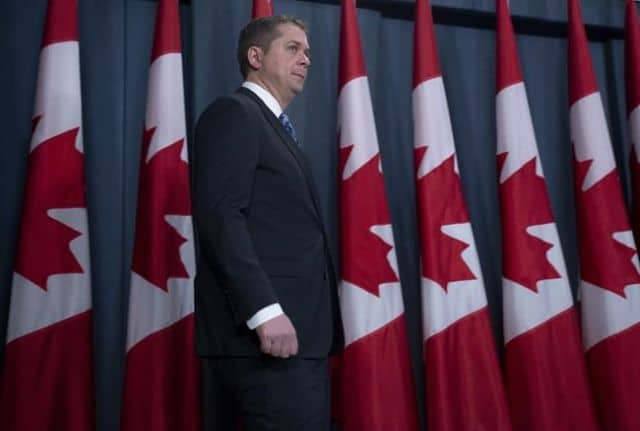
Canada is looking for new Asian customers for its canola to answer China’s ban on many shipments of the product, says International Trade Minister Jim Carr.
The Canadian government is also still pushing China to allow a Canadian delegation to visit the People’s Republic to verify complaints that Canadian canola is contaminated with pests, Carr said in an interview.
So far, China hasn’t agreed to requests for a Canadian delegation to test its unproven concerns. China has rejected Canadian canola-seed shipments in recent months and has suspended the licences of two major Canadian exporters.
The government requested permission on April 1 for inspectors from the Canadian Food Inspection Agency and Agriculture and Agri-Food Canada to visit China, but so far there has been no response.
The CFIA has twice inspected the shipments in question and found no impurities, Carr told The Canadian Press on Saturday, prior to the visit of Japanese Prime Minister Shinzo Abe.
“We want to have a science conversation with the Chinese to verify any allegations that the very high quality Canadian canola has any impurities at all. We’re looking to have that proven to us,” the minister said. “We will send a high-level delegation as soon as that invitation is sent to us. Meanwhile, it’s important that we look for other markets for our canola and certainly the Asia-Pacific is among them, including Japan.”
Agriculture Minister Marie-Claude Bibeau has also written to her Chinese counterparts to press the issue, he added.
Asked why he thinks the Chinese have been delaying, Carr replied: “I can’t speak for them.”
On Monday, Conservative Leader Andrew Scheer urged Prime Minister Justin Trudeau to pressure China by pulling hundreds of millions of dollars Ottawa has committed to Beijing’s multilateral development bank.
The Liberal government has committed $256 million over five years to the Asian Infrastructure Investment Bank, in the hopes that Canada can help guide its decisions and that Canadian companies will get business from the development projects it promotes. Dozens of countries outside Asia are participants in the bank, from Madagascar to Ireland to Norway.
Scheer also demanded Trudeau take several more-immediate steps, including appointing a new ambassador to China, launching a complaint about the canola dispute with the World Trade Organization and increasing financial support for farmers caught in the crossfire of what has become a broader diplomatic spat between the two countries.
“By doing nothing, this policy of appeasement that Justin Trudeau has pursued with the government in China has clearly not worked,” Scheer said.
China’s decision to cut off Canadian canola-seed shipments is widely viewed as an attempt to apply economic pressure on Canada following the December arrest of senior Huawei executive Meng Wanzhou in Vancouver at the behest of the United States. China is the usual destination for about 40 per cent of Canadian canola, a major source of oil used for cooking and some industrial purposes.
In the days following Meng’s arrest, China arrested two Canadian citizens on allegations of engaging in activities that have endangered Chinese national security. Michael Kovrig, a Canadian diplomat on leave, and Michael Spavor, an entrepreneur, are still being held by Chinese authorities in what the Trudeau government has called arbitrary detentions.
Weeks later, Trudeau fired Canada’s former ambassador to China, John McCallum, for going off-script in the government’s efforts to win the release of the two men. Before his posting in Beijing, McCallum was a longtime Liberal MP and cabinet minister.
Scheer tried to cast the canola fight as just one example of the Liberals’ failures on the foreign-policy front.
“There’s been no reaction, there have been no consequences to the government of China for detaining our citizens and blocking our exports,” Scheer said.
“I believe that when a country stands up for itself and shows that there are consequences to mistreating our citizens and blocking our exports that that will be when China recognizes that they should not pursue this course of actions.”


